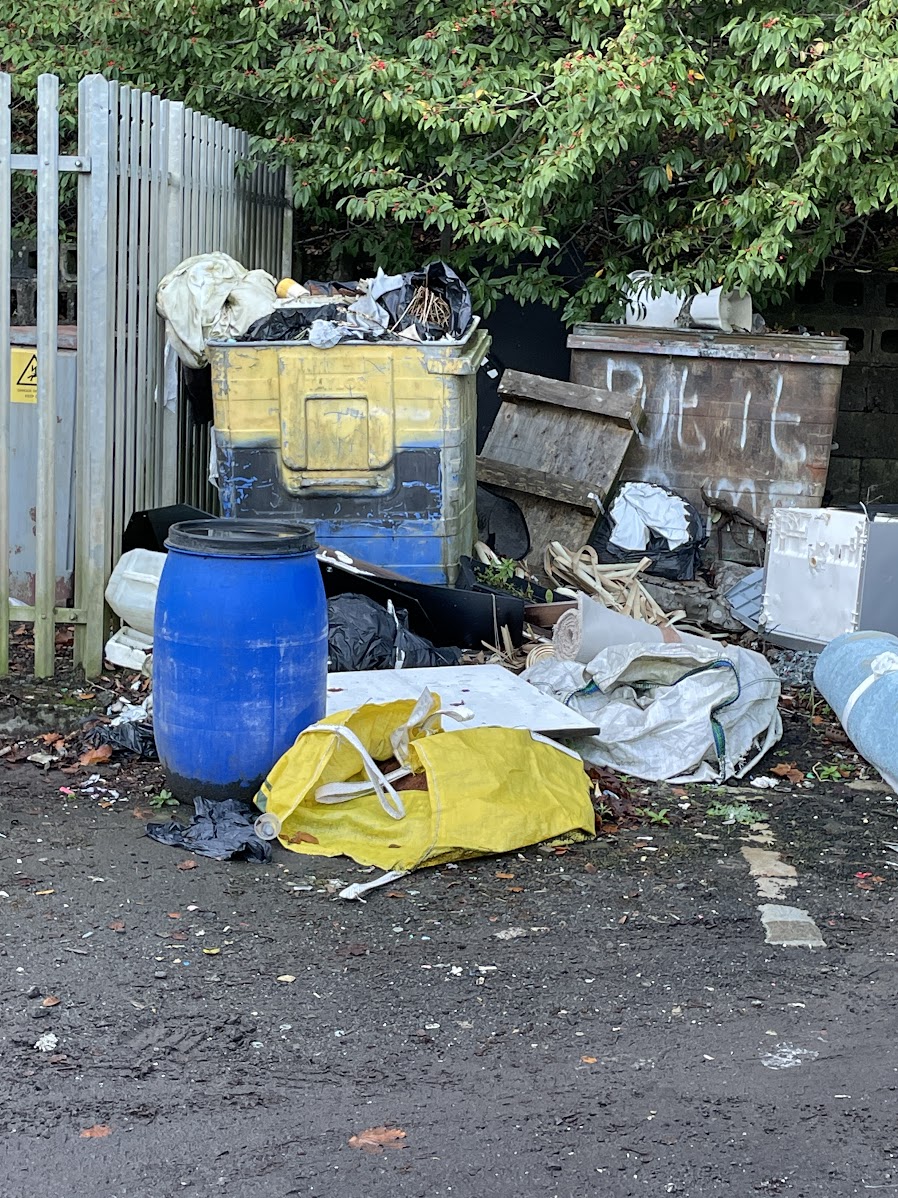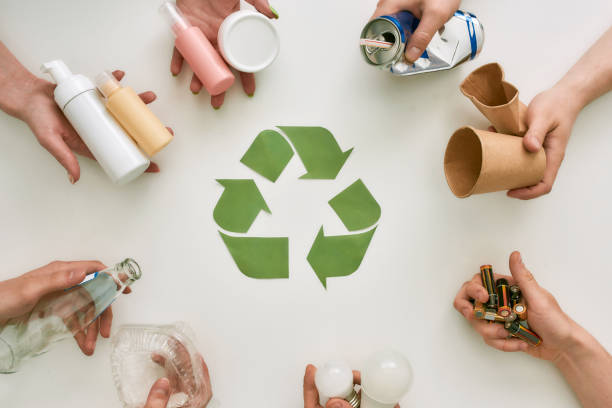How do I get rid of junk in Glasgow
Are you fed up with mess and rubbish occupying your space in your home in Glasgow? Then you don’t need to search anymore! In this article, we will explore efficient methods to eliminate rubbish and organise your living area. Bid farewell to the anxiety and disorder caused by excessive belongings and welcome a tidy and orderly home.
What is Rubbish?
Rubbish refers to waste materials that are no longer needed or useful. It includes items such as household garbage, packaging materials, old furniture, broken appliances, and discarded electronic devices. Rubbish can also consist of organic waste like food scraps and garden trimmings.
Proper disposal of rubbish is essential to maintain cleanliness and prevent environmental pollution. Recycling, composting, and responsible waste management are effective ways to deal with rubbish. Understanding what is considered rubbish helps individuals make informed decisions regarding disposal methods and contribute to a cleaner and sustainable environment.
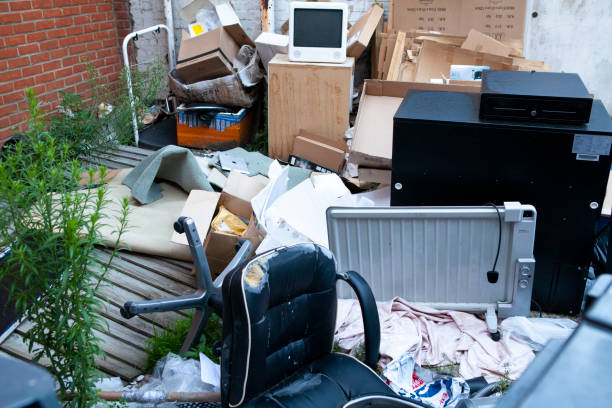
What are the Types of Rubbish?
When it comes to getting rid of rubbish in Glasgow, it’s important to understand the different types of waste that may accumulate in your home or property. In this section, we will discuss the three main categories of waste: household, garden, and construction. By identifying the specific type of waste you need to dispose of, you can ensure that it is properly and efficiently removed from your space. So, let’s dive into the various types of waste and how to best handle each one.
1. Household Rubbish
Household rubbish refers to the waste generated from daily activities within a home. Proper disposal of household rubbish is essential for cleanliness and maintaining a healthy environment. Here are some steps to effectively get rid of household rubbish:
- Segregate waste into different categories like recyclables, organic waste, and non-recyclables.
- Use separate bins for each category and ensure they are properly labelled.
- Regularly empty bins to avoid overflow and unpleasant odours.
- Dispose of recyclables by placing them in designated recycling bins or taking them to a recycling centre.
- Compost organic waste to create nutrient-rich soil for gardening.
- Bag non-recyclables securely and place them in the appropriate waste collection point.
By following these steps, you can effectively manage and dispose of household rubbish, contributing to a cleaner and more sustainable environment.
2. Garden Rubbish
When it comes to disposing of garden rubbish, there are several steps you can take to ensure proper disposal and minimize environmental impact.
- Composting: Use a compost bin or pile to break down organic garden waste, such as leaves, grass clippings, and small branches.
- Pruning and cutting: Trim and cut larger branches into manageable sizes for easy disposal.
- Green waste collection: Check if your local council offers green waste collection services for garden debris.
- Hire a skip: If you have a large amount of garden rubbish, consider renting a skip for convenient disposal.
Remember to always follow local regulations and explore options for recycling or repurposing garden waste whenever possible.
3. Construction Rubbish
Construction waste refers to the materials produced during the construction or demolition of buildings and infrastructure projects. Proper management of construction waste is important in order to minimize the impact on the environment and ensure safety.
Here are the steps to dispose of construction waste:
- Separate the waste: Sort different types of waste for recycling or disposal.
- Rent a skip: Hire a skip to collect and transport the construction waste to a designated disposal site.
- Use licensed removal services: Engage professional waste removal companies that specialize in handling construction waste.
- Recycle materials: Identify recyclable items such as metal, wood, concrete, and bricks and make sure they are sent for recycling.
In a construction project in Glasgow, the contractor implemented a waste management plan and worked closely with a licensed waste removal service. By sorting and recycling materials, they reduced the amount of waste sent to landfills, contributing to a more sustainable construction process.
Why is it Important to Get Rid of Rubbish?
Getting rid of rubbish is important for several reasons. Firstly, it helps maintain cleanliness and hygiene in our surroundings, preventing the spread of diseases and pests. Secondly, disposing of rubbish properly reduces environmental pollution, as improperly disposed waste can contaminate soil, water sources, and air. Thirdly, removing rubbish improves the aesthetic appeal of our neighbourhoods, making them more attractive and enjoyable to live in. Moreover, proper waste management promotes recycling and resource conservation, contributing to a sustainable future. By understanding why it is important to get rid of rubbish, we can all play a role in creating a cleaner, healthier, and more sustainable environment.
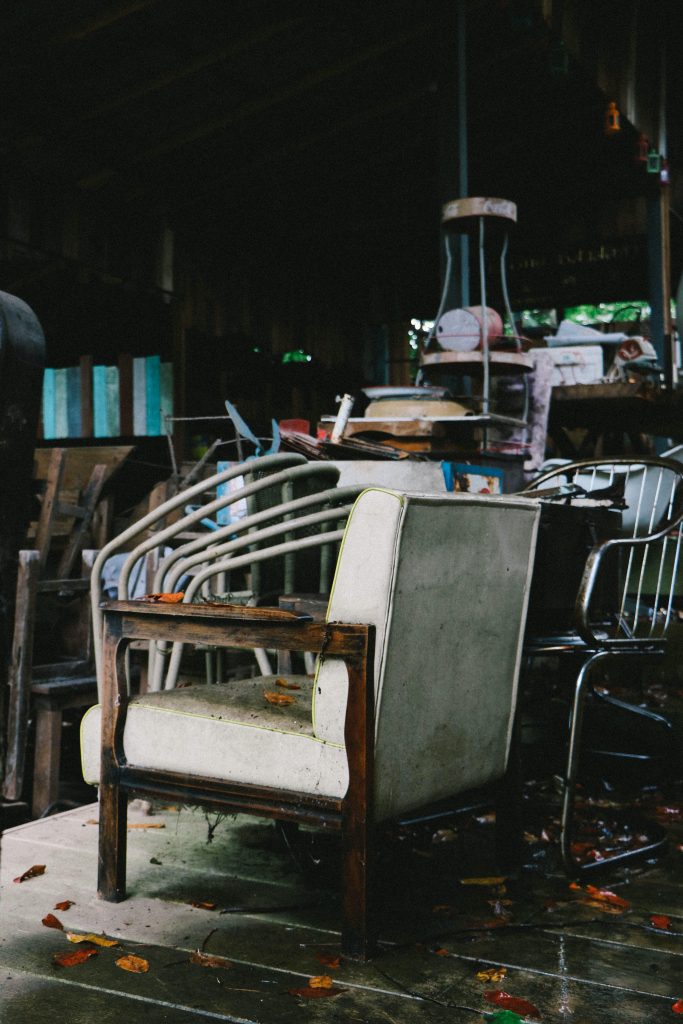
How to Get Rid of Rubbish in Glasgow?
Dealing with rubbish in a busy city like Glasgow can be a challenging task, but do not worry – there are several options available to help you effectively dispose of junk. In this section, we will discuss the different methods for getting rid of rubbish in Glasgow. From hiring a rubbish removal service to using a rubbish removal app, we will explore the advantages and disadvantages of each option to assist you in making the best decision for your requirements. Bid farewell to clutter and welcome a cleaner space with these tips for disposing of rubbish in Glasgow.
1. Hire a Rubbish Removal Service
When you need to dispose of waste in Glasgow, it can be convenient to hire a waste removal service. Here are some steps to consider:
- Research: Look for reputable waste removal companies in your area.
- Get Quotes: Contact different companies and compare their prices and services.
- Check Reviews: Read reviews or ask for recommendations to ensure reliability.
- Schedule Pickup: Arrange a date and time for the waste removal service to collect your items.
- Prepare the Items: Sort and bag or box the waste to make the removal process smoother.
- Payment: Be clear about the cost and payment method before the service is provided.
- Follow Environmental Regulations: Ensure the chosen service disposes of waste responsibly.
By hiring a waste removal service, you can save time, effort, and ensure proper disposal of your unwanted items in Glasgow.
2. Donate or Sell Items in Good Condition
When disposing of waste in Glasgow, it is advisable to donate or sell items that are in good condition to reduce waste and help others benefit from them. Follow these steps:
- Assess the condition: Determine if the items are in good enough condition to be donated or sold.
- Research donation options: Look for local charities, thrift stores, or community organizations that accept donations.
- Contact online platforms: Consider using online platforms like Gumtree or Facebook Marketplace to sell your items.
- Pricing and advertising: Set reasonable prices and create attractive listings with clear descriptions and good quality photos.
- Arrange pickup or delivery: Coordinate with the buyer or the chosen donation organization for pickup or drop-off.
By donating or selling items in good condition, you can extend their lifespan and contribute to reducing waste in Glasgow.
3. Rent a Skip
Renting a skip is a convenient way to get rid of rubbish in Glasgow. Here are the steps to rent a skip:
- Research skip hire companies in your area.
- Compare prices and sizes of skips available.
- Contact the chosen company and book the skip.
- Select a suitable location for the skip to be placed.
- Ensure you have the necessary permits, if required.
- Fill the skip with your rubbish, following any guidelines provided.
- Contact the company to arrange collection of the skip.
Consider renting a skip for large amounts of rubbish or when doing extensive renovations. Remember to dispose of the rubbish responsibly and recycle whenever possible.
4. Use a Rubbish Removal App
Using a rubbish removal app can make the process of getting rid of rubbish in Glasgow more convenient and efficient. Here are the steps to use a rubbish removal app:
- Download and install a reputable rubbish removal app from your smartphone’s app store.
- Create an account and provide necessary details such as your location and contact information.
- Use the app to schedule a rubbish removal service at a time that suits you.
- Upload pictures or provide a description of the rubbish you need to be removed.
- Receive a price quote and confirm the booking.
- Track the progress of the rubbish removal team through the app.
- Once the rubbish is collected, make the payment through the app.
- Leave a review and rating for the service provider to help others in the future.
By using a rubbish removal app, you can easily and efficiently get rid of your rubbish in Glasgow with just a few taps on your phone.
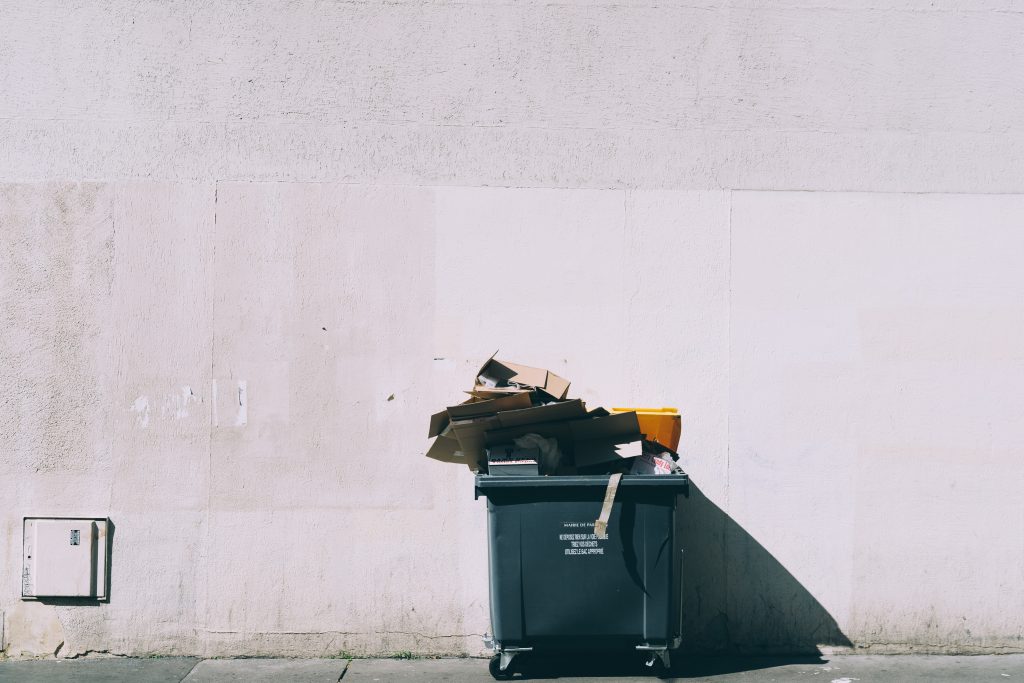
What Should I Consider When Getting Rid of Rubbish?
When it comes to getting rid of rubbish in Glasgow, it’s important to consider a few key factors. Not only do you want to dispose of your junk in a responsible and environmentally-friendly manner, but you also want to do so at a reasonable cost and without too much time and effort. Additionally, safety should always be a top priority. In this section, we will discuss the various aspects to consider when getting rid of rubbish, including the environmental impact, cost, time and effort, and safety measures.
1. Environmental Impact
When considering rubbish removal, it is crucial to understand the environmental impact of our actions. To minimise negative consequences, follow these steps:
- Reduce waste by practising recycling and composting.
- Avoid single-use items and opt for reusable alternatives.
- Dispose of hazardous materials properly at designated facilities.
- Support eco-friendly waste management systems.
Remember, small actions can have a big impact on the environment. By making conscious choices, we can contribute to a cleaner and healthier planet for future generations.
2. Cost
The cost is an important factor to consider when getting rid of rubbish. Here are some steps to help you manage the cost effectively:
- Assess the quantity and type of rubbish you need to dispose of.
- Research different rubbish removal services in Glasgow and compare their prices.
- Consider alternative options like renting a skip or using a rubbish removal app, which may offer more cost-effective solutions.
- If you have items in good condition, consider donating or selling them to offset some of the removal costs.
Pro-tip: Before making a decision, get quotes from multiple providers and inquire about any additional fees or charges to ensure transparency in pricing.
3. Time and Effort
Investing time and effort in proper rubbish disposal is crucial for maintaining cleanliness and minimizing environmental impact. Here are steps to consider when getting rid of rubbish:
- Sort and segregate: Separate recyclable materials from general waste.
- Organize disposal: Identify appropriate disposal methods for each type of rubbish.
- Utilize recycling centres: Locate nearby recycling facilities for specific items.
- Proper packaging: Use suitable containers to prevent leaks or spills during transportation.
In the 19th century, cities like Glasgow faced massive rubbish buildup. Efforts to combat this led to the establishment of public health boards and improved waste management systems, contributing to cleaner and healthier urban environments.
4. Safety Measures
To ensure safety while getting rid of rubbish, follow these measures:
- Wear appropriate protective gear, such as gloves, masks, and safety goggles.
- Handle sharp objects carefully and use tools like tongs or pliers to avoid injury.
- Dispose of hazardous waste separately, following local regulations.
- Secure heavy items properly during transportation to prevent accidents.
- Keep children and pets away from the rubbish disposal area.
Remember, safety should always be a top priority when dealing with rubbish removal. By following these measures, you can ensure a safer and more efficient process.
Looking for additional assistance? Consider consulting a professional rubbish removal service to handle the task for you.
How Can I Prevent Rubbish Buildup in the Future?
In order to maintain a clean and clutter-free environment, it is important to not only get rid of junk, but also prevent it from accumulating in the future. In this section, we will discuss practical and effective ways to prevent rubbish buildup in Glasgow. From practicing minimalism to properly disposing of items, we will explore various methods to keep your space junk-free. We’ll also touch on the importance of regular decluttering and avoiding impulse buying to maintain a clutter-free lifestyle.
1. Practice Minimalism
Practising minimalism is a great way to reduce rubbish buildup and live a more sustainable lifestyle. Here are some steps you can take to practise minimalism:
- Declutter regularly: Go through your belongings and get rid of items you no longer need or use.
- Adopt a one in, one out policy: Whenever you bring something new into your home, make sure to get rid of something else.
- Avoid impulse buying: Before making a purchase, ask yourself if you really need the item and if it aligns with your minimalist goals.
- Focus on experiences rather than material possessions: Instead of buying more stuff, invest in experiences that bring you joy and fulfilment.
2. Properly Dispose of Items
Properly disposing of items is essential to minimise environmental impact and maintain cleanliness. Here are some steps to follow when disposing of items:
- Separate recyclable items, such as paper, plastic, and glass, and take them to designated recycling centres.
- Dispose of hazardous materials, like batteries and electronics, at specialised collection points to prevent pollution.
- Donate items in good condition to charities, helping those in need and reducing waste.
- Utilise local waste management services for regular rubbish collection.
In my neighbourhood, a community initiative was launched to properly dispose of electronic waste. Residents were educated on the importance of recycling electronics and given convenient drop-off points. As a result, a significant amount of e-waste was diverted from landfills, promoting sustainability and preserving the environment.
3. Regular Decluttering
Regular decluttering is essential for maintaining a clean and organised living space. Here are some steps to help you with this task:
- Set a regular schedule: Choose a specific day or time each week or month for decluttering.
- Start small: Begin with one area or room at a time to prevent overwhelm.
- Categorise items: Sort belongings into categories such as keep, donate, sell, or discard.
- Remove unused items: Get rid of things that you no longer need, use, or love.
- Organise remaining items: Find suitable storage solutions to keep things in order.
Pro-tip: Make decluttering a regular habit by setting reminders or involving family members to make it a fun and collaborative activity.
4. Avoid Impulse Buying
Avoiding impulse buying is important in order to prevent clutter and unnecessary waste. Here are some steps to help you resist the temptation:
- Create a budget and stick to it.
- Make a shopping list and only buy what you need.
- Wait 24 hours before making a purchase to avoid impulse decisions.
- Avoid shopping when you’re feeling stressed or emotional.
- Unsubscribe from retailer newsletters or avoid shopping websites to remove yourself from temptation.
Did you know that impulse buying became more common in the 20th century due to the growth of consumer culture and advertising? Retailers started using persuasive tactics to encourage impulsive purchases, resulting in increased consumption and waste.

